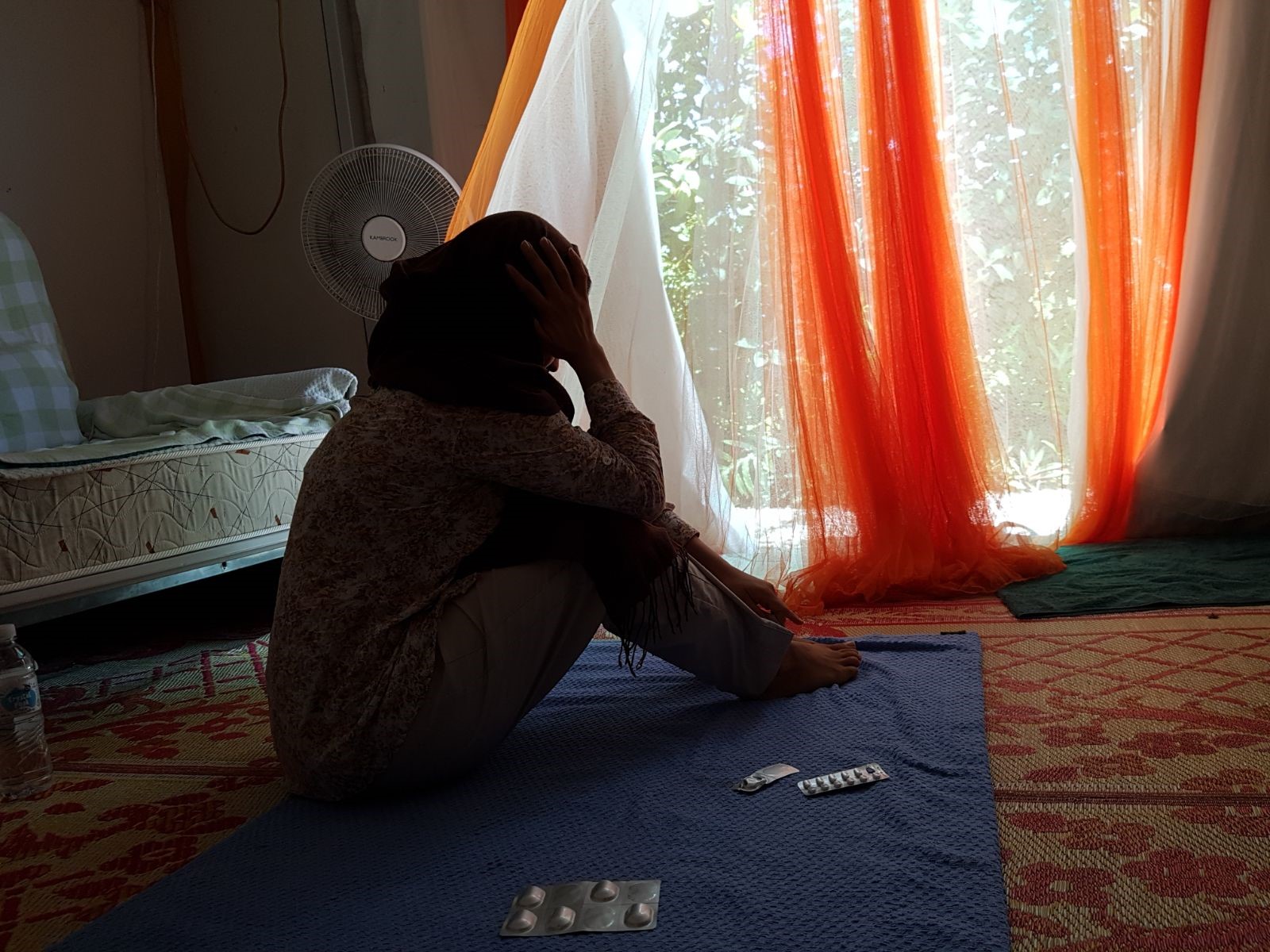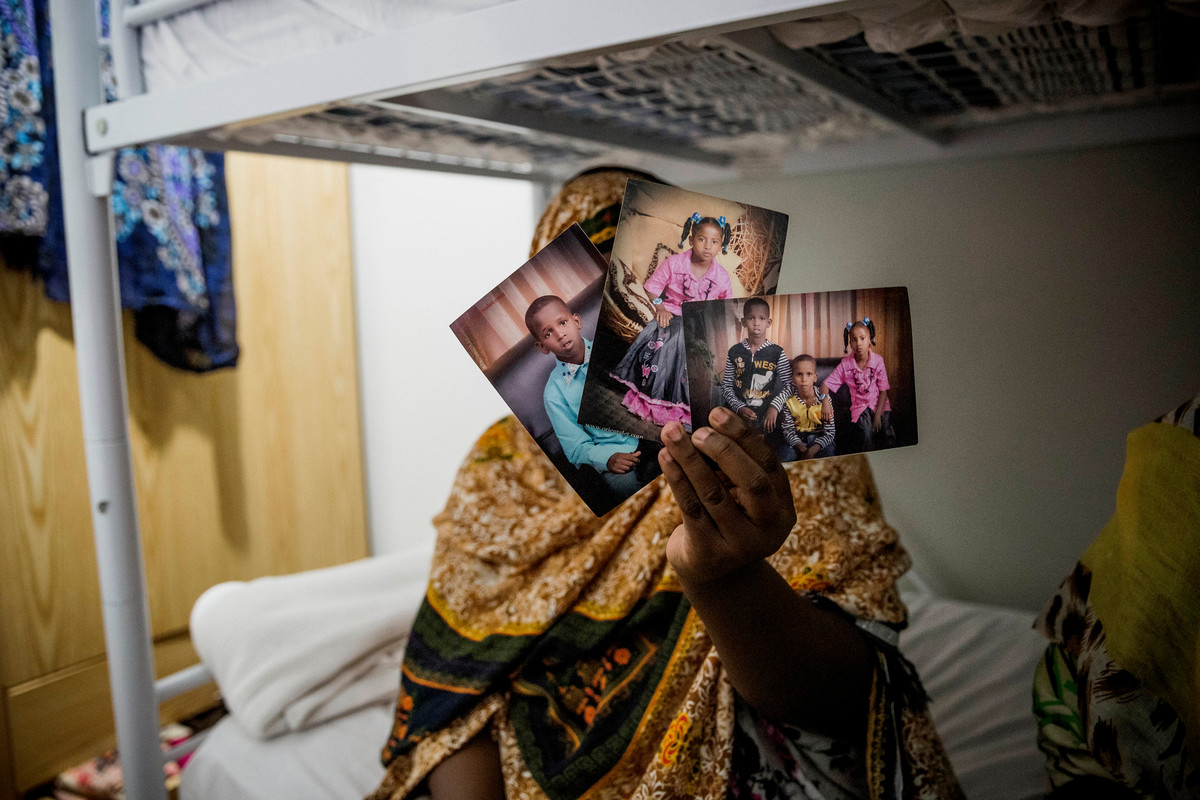Op-ed by Indrika Ratwatte, UNHCR Director of the Bureau for Asia and the Pacific
Op-ed by Indrika Ratwatte, UNHCR Director of the Bureau for Asia and the Pacific

Despite decades working in humanitarian crises around the world, the suffering I witnessed on Nauru is an immense shock
No one denies that among those who initially supported “offshore processing” were many well-intentioned people. Driven to desperation by the tragedy of global displacement and its consequences, most turned to this policy reluctantly. Noble motivations might have been one reason why some, at first, turned away when confronted with a harsh and cruel reality. Equally true, however, is the fact that Australia’s treatment of these human beings and families has long been unwatchable.
Politicians and spin doctors have sought to convince the Australian public that empathy and common decency are naïve. But the approach taken since 2013 has demonised and punished people we know need help and protection, evidenced by the fact that the vast majority have been recognised as refugees. Their continued suffering, with no end yet in sight for many, is plainly wrong. Worse than this, a policy that knowingly and unrelentingly harms children for political ends is an abomination. There can be no three word slogans to justify it. There are no excuses.
After decades working in humanitarian crises around the world, witnessing Australia’s offshore processing firsthand is deeply confronting. Despite comprehensive evidence of the harm inflicted, meeting the innocent people affected in Nauru this week is nevertheless an immense shock. For over four years, in desperate conditions, they have had to endure. They have held their families together. Some have tried to start small businesses or otherwise further their lives. Human resilience is astounding, but it has its limits. As UNHCR staff, we are shocked each time we return to Nauru by a further deterioration in people’s capacity to cope.
This is the reality for refugees and asylum seekers here: the prevalence of depression and post-traumatic stress disorder is among the highest ever recorded. Credible allegations of sexual assault have been made, accompanied by such grievous physical injuries that medical transfers to Australia have been required. Despite spending billions of dollars since 2013, Australia has not provided adequate medical care and support. Without exception, parents are most devastated by the impact “offshore processing” has upon their children. People sit, in pre-fabricated buildings, with fluorescent lighting and boarded up windows to keep out the heat. And they wait.
Separation from loved ones takes an enormous toll. One woman, having fled her country due to a well-founded fear that her youngest children would be taken from her, arrived in Australia just one week after her adult daughters. The irony of their prolonged family separation, by the 19 July deadline that feels so arbitrary, does not escape her. Suffering from severe depression, she speaks with her family in Melbourne most days but does not leave the three-room demountable. She is not asking for much. “I am old,” she says. “I only wanted a small life … my family. I have no hope left.”
Adults and children alike have increasingly attempted suicide and acts of self-harm. The details are gruesome but important: children have swallowed razor blades, have tried to overdose on medication, have hanged themselves. The situation of the 10-year-old “boy with no name”, transferred under a federal court order last week, is, tragically, not unique. Any suggestion that such behaviours are a political manipulation is not only absurd, it misses the point entirely – that no one in their right mind would make such a terrible reckoning.
The desperate need for solutions outside of Papua New Guinea and Nauru is now acknowledged by all sides of politics, in all three countries involved. The continued movement of some refugees to the US is a welcome relief, and a start. But in August, hundreds more refugees and asylum seekers will mark their fifth year in a desolate and open-ended limbo.
Enhanced medical care is critically needed, particularly for mental health needs. Over 200 refugees and asylum seekers, still living in tents after almost five years, should be immediately relocated to more appropriate shelter, which stands empty and available in Nauru.
Australia has been presented with other clear, actionable options for change. By accepting New Zealand’s continuing offer to take refugees from Papua New Guinea and Nauru, it could, almost immediately, bring an end to the suffering of many of the hundreds of families and 158 children in Nauru. It should do so, and quickly.
Equally, Australia must be part of the solution for some. This country has a proud refugee history, and an exemplary settlement sector that could ably support those who have sought its protection.
The depth of despair and hopelessness was echoed to us by a single mother with four children this week in Nauru. Separated from her mother, sister and brother in Australia, she told UNHCR, “I feel that I am in a deep, dark well screaming for help and no one can hear me.”
Good intentions no longer matter. It is time for action.





